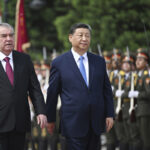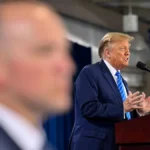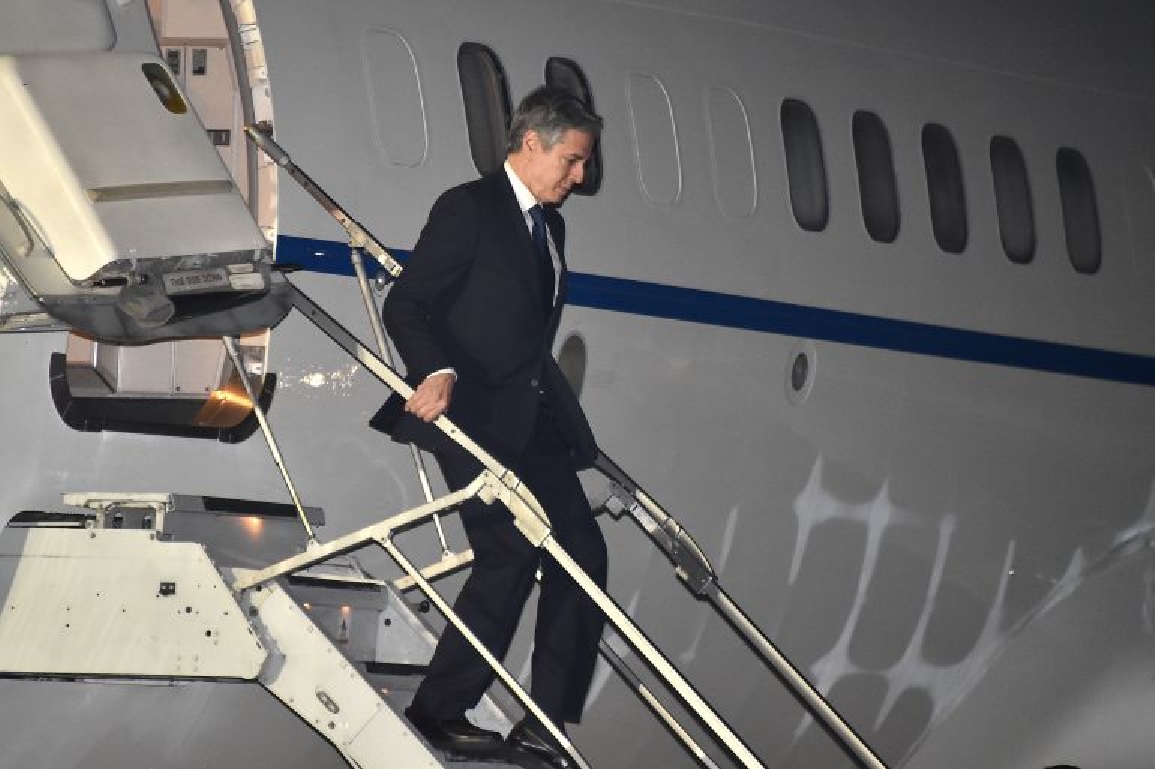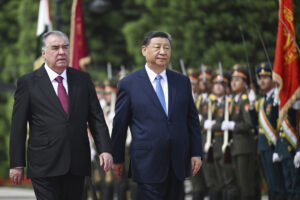The United States has signed a defence and maritime surveillance agreement with Papua New Guinea (PNG) during a visit by the top US diplomat as Washington aims to counter China’s influence in the Pacific region.
“The defence cooperation was drafted by the United States and Papua New Guinea as equals and sovereign partners,” US Secretary of State Antony Blinken said in a signing ceremony on Monday.
He is expected to meet 14 Pacific island leaders during his trip.
Washington and its allies are seeking to deter Pacific island nations from forming security ties with China, a rising concern amid tensions over Taiwan, which Beijing considers its territory. China has said any attempt by the self-governed island to secede will trigger military action.
Leaders of the Pacific islands, whose territories span 40 million square kilometres (15 million square miles) of ocean, have said rising sea levels caused by climate change are their most pressing security priority.
Reporting from Beijing, Al Jazeera’s Katrina Yu said that China has so far had a “measured response.”
“It says it has no objection to Papua New Guinea working with the US and that the international community should focus more on the Pacific island region,” said Yu adding that China has been criticising the international community for not helping developing countries such as Papua New Guinea.
“But the caveat to this is that China says this cooperation between Port Moresby and Washington should not target any third party, meaning China,” she added.
Speaking from Canberra, John Blaxland, professor of international security and intelligence at the Australian National University, said that the recent developments show “unrestricted competition at play.”
“The silver lining is that Papua New Guinea islands are getting more investment and high level visits than they’ve seen in generations,” said Blaxland.
‘Fully transparent’ pact
Meeting PNG Prime Minister James Marape, Blinken said the US would deepen its partnership across the board with PNG. They discussed economic development, the climate crisis, and the importance of continuing US engagement with the Pacific, the State Department said in a readout.
The pact will expand PNG’s defence capabilities to enhance humanitarian assistance and disaster response, and make it easy for US and PNG forces to train together, Blinken said.
“It will be fully transparent,” he added.
A separate agreement would increase maritime surveillance of PNG’s exclusive economic zone through US Coast Guard patrols, protecting its economy from illegal fishing.
Blinken said partnerships with businesses would bring investment worth tens of billions of dollars to PNG.
US President Joe Biden sent “his regret that he was not able to be here”, he added. He was forced to cancel his travel to PNG amid debt ceiling negotiations in Washington.
Marape said the agreement would boost economic security by giving PNG’s defence force “the ability to know what is happening in its waters – something we have never had since 1975”.
Several universities held protests at campuses against the signing of the Defence Cooperation Agreement, with opposition politicians saying it would upset China.
Police Commissioner David Manning said there was a heavy police and military presence around the capital with roads blocked and defence patrol boats in the water around the meeting venue.
Marape has denied it would stop PNG from working with China, an important trade partner.
The US defence agreement was an extension of an existing agreement, he said earlier.
Marape told media on Sunday the defence agreement would also see an increase in US military presence over the next decade.
Washington will provide $45m in new funds as it worked with PNG to strengthen economic and security cooperation, including protective equipment for the PNG defence force, climate change mitigation and tackling transnational crime and HIV/AIDS, the US State Department said.
Modi pledges support
Earlier, India’s Prime Minister Narendra Modi pledged support for the Pacific Islands at a summit in the PNG capital, Port Moresby.
Modi told the 14 leaders of the Forum for India-Pacific Islands Cooperation that India would be a reliable development partner to small island states, and was committed to a “free, open and inclusive Indo-Pacific”.
“Without any doubt, we are willing to share our capabilities and experiences in digital technology, space technology, health security, food security, climate change and environment protection,” he said in opening remarks.

The Quad leaders of Australia, United States, Japan and India had agreed in Hiroshima to increase cooperation with Pacific Island countries, he added.
In his opening remarks, Marape urged India to think of small island states which “suffer as a result of big nations at play”.
Marape said Russia’s war with Ukraine, for instance, had caused inflation and high fuel and power prices in the region’s small economies.
PNG, just north of Australia, is strategically significant and was the site of fierce battles during World War II.
There are also concerns about the militarisation of the Pacific after Beijing signed a security agreement with the Solomon Islands last year.
That pact has led the US to renew its commitment to the region, opening new embassies and hosting an unprecedented summit of Pacific leaders at the White House.
While the US defence pact is being framed as a deal to protect Papua New Guinea’s territorial borders, experts say China’s Pacific presence is a key driver.
“Port Moresby is no longer the sleepy diplomatic outpost it once was,” Gordon Peake, a senior adviser for the Pacific Islands at the US Institute of Peace, told the AFP news agency.
“While China might not be mentioned anywhere in the document, it’s an important subtext in this story of deepening US-PNG relations.”
Source : Aljazeera















